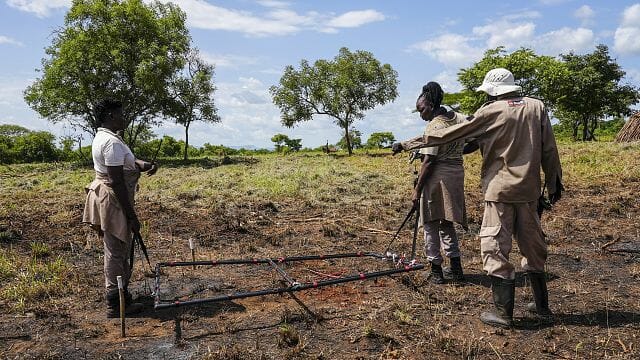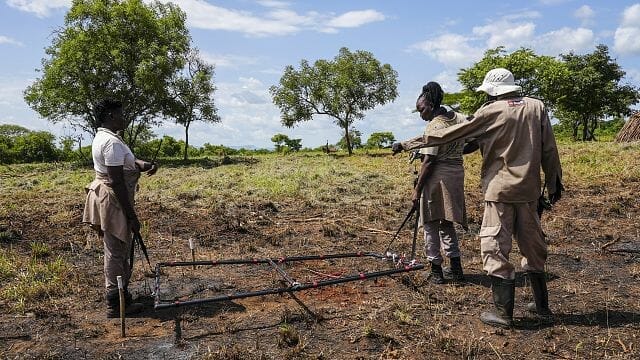Deminers from the Mines Advisory Group (MAG)
JUBA, June 6 (NNN-AFRICANEWS) — 12 years after South Sudan’s independence, landmines are still a threat.
Over 5,000 people have been killed or injured by unexploded ordnances and land mines since 2004, according to the UN Mine Action Service.
Eastern Equatoria’s Magwi county, near the border with Uganda, is one of the country’s most heavily mined areas.
By the end of 2021, the state had the most areas contaminated with cluster munitions in the nation — 55 out of a total of 130 — according to Mine Action Review, who does global mine analysis.
Eastern Equatoria county was also impacted by wars with Sudan and fighting with Ugandan rebel group LRA.
For mine-clearing experts working with NGO MAG, this is not merely a job: it’s a mission. Landmines took the life of Monica Fekuriu Michael’s uncle.
She wants the best for her compatriots who have started returning to the country after a five-year civil war.
“I want to make this area very clean so that my fellow people from Uganda, from Kenya, from Congo, from Khartoum should come back to the South Sudan.”
Mine-clearing experts expert visit remote villages for mine awareness training even though they face challenges. While a peace deal signed in 2018 is largely holding conflict between communities persists, making the context unpredictable to operate in.
It’s also hard to work once the rainy season starts, usually between June and September.
In Eastern Equatoria state, local authorities say thousands who fled the civil war to Uganda have started returning.
In Pageri county, approximately 1,500 people have come back this year, out of nearly 17,000 (almost the entire community), which had fled.
Yet many have returned to villages with little food or shelter, no working schools and are unable to cultivate because mines were discovered in their farms.
Residents say more than half of the area is not accessible due to landmines.
During clearance in a cluster munitions site in Ayii commune in May, 16 unexploded munitions were found during five days of work.
South Sudan gave the UN Mine Action Service until 2026 to clear all anti-personnel minefields in the country.
As munitions are being found daily many fear the deadline won’t be kept.
With elections scheduled for next year, locals say they want to clear contaminated areas so those who have fled can return. — NNN-AFRICANEWS







